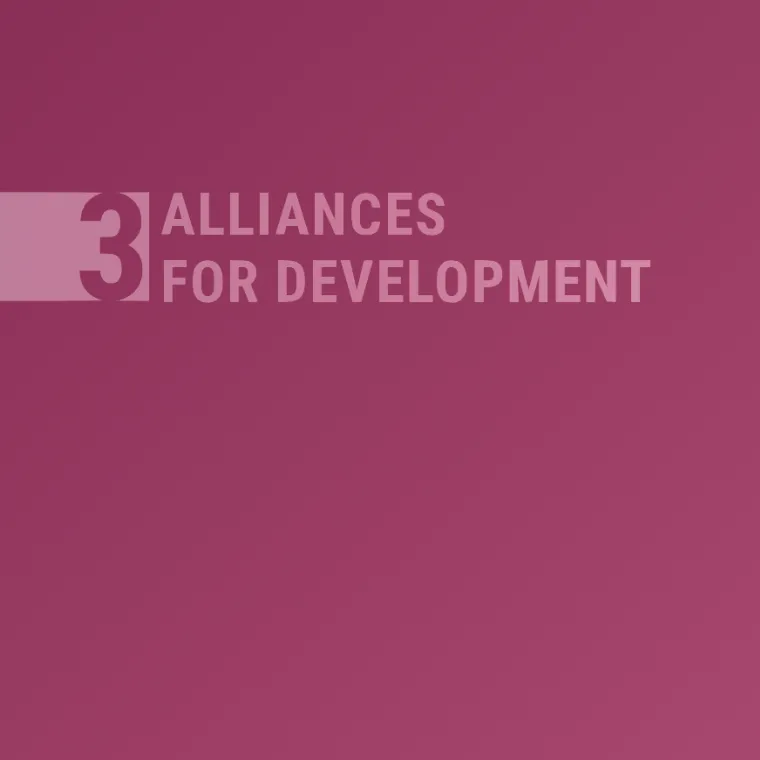Alliances for development
We work side by side with the countries where we operate to promote sustainable development and guarantee their access to safe and clean energy.
Download chapter in PDFHere’s how we promote access to energy
In 2021, around 750 million people, 10% of the world's population, had no access to electricity. The current energy crisis is undermining efforts towards more widespread energy availability. This is why today more than ever it is essential to work side by side with countries in which we operate by adjusting the local development programmes to the various contexts while respecting human rights.
Some examples of our activities around the world
In Mexico we promote quality primary education, in Egypt we foster economic diversification, in Indonesia we provide communities with access to drinking water, in Nigeria we raise awareness of land protection issues and in Iraq, we work to improve healthcare services. In Côte d'Ivoire we promote initiatives to facilitate access to improved, non-toxic cooking systems.
Local development projects in the world
Clean cooking and education in Côte d'Ivoire
Access to energy can be considered fair if it ameliorates the living conditions of all people. An example of this is the programme for the distribution of improved cooking systems that we have started in the most vulnerable rural communities in Côte d'Ivoire. Thanks to high thermal efficiency, these systems reduce the emissions of greenhouse gases and smoke from combustion.
In 2022 we distributed more than 20,000 stoves to over 100,000 people in the region of Gbêkê. By 2023, 20 schools will be upgraded to guarantee services and teaching material to over 8,000 primary school students.
Video When cooking becomes sustainable
Eni is running an initiative in Côte d'Ivoire to reduce energy poverty, combat deforestation and improve the health of local communities... one stove at a time.
Our results in figures
An increasing number of students will benefit from school services and facilities that match their needs, and the number of people with access to drinking water will grow around the world. The results of 2022 show our commitment and even go beyond our original targets, in keeping with an idea of sustainability that must be first and foremost social, as well as environmental and energy-related. Here is a selection. To learn more, read our full report.
- 63,400new students with improved schools and services
- 71,700people with access to drinking water
- 7,800people received job training
- 120,000people have access to healthcare services
- 44,700new students with improved schools and services
- 47,700people with future access to drinking water
- 20,000people will receive job training
- 280,000people will have access to improved services
Respect of human rights for a just transition
The dignity of every human being, the respect for peoples and integration with the communities directly involved lie at the heart of the way in which we act in the countries in which we operate. We are committed to ensuring that what we do does not impact people’s lives negatively by following a benchmark model for the classification of business projects.
CEO of the Institute for Human Rights and Business (IHRB) since its formation in 2009. He advises a number of governments, intergovernmental organisations, and businesses
The transition towards a low-carbon economy will continue to require substantial choices in order to ensure a “just” transition that takes into account all the people affected.
Would you like to know more?
